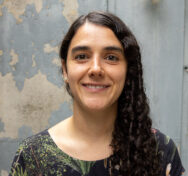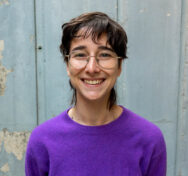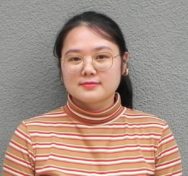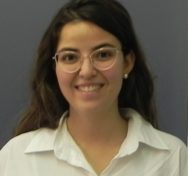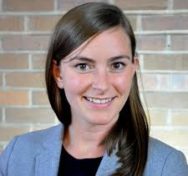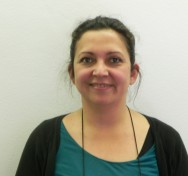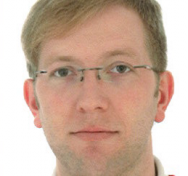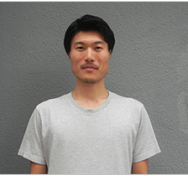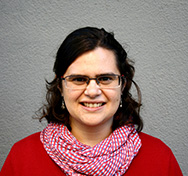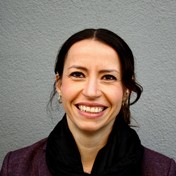GENERAL ADMISSION REQUIREMENTS
- Holding an official university degree, either Spanish or from any other country in the European Higher Education Area or, in other words, having obtained a minimum of 300 ECTS credits accumulated throughout the totality of formal university education. Of these credits, 60 or more must be at Master’s degree level.
- Holding an official Spanish academic qualification, which entails having achieved a minimum of 300 ECTS credits. These graduates must obligatorily complete supplementary training requirements.
- Holding a university degree obtained in accordance with the requirements of the educational system in other countries. It is not necessary to obtain official recognition of this qualification (homologation) by the Spanish authorities. However, it is necessary to obtain prior verification from the university which awarded the degree, stating that the qualification is equivalent to a master’s degree obtained from a Spanish university and that, in the country which awards the degree, it is sufficient qualification to allow access to a PhD programme.
- Holding a Spanish PhD obtained in accordance with previous university regulations.
Admission to the PhD programme will be decided by the vice-chancellor and is subject to completion of supplementary training where required.
SPECIFIC ADMISSION REQUIREMENTS
- 25%Qualifications detailed in academic record
- 20%Thematic appropriateness
- 15%Affinity of access studies with the field of Demography
- 20%Letter of motivation and personal interview
- 10%Obtaining research grants or subsidies
- 10%Linguistic competence
- Admission will be subject to acceptance by a thesis supervisor proposed by the academic commission for the doctoral programme
ADMISSION
- The candidate wishing to enrol for a PhD must apply to the academic commission for the doctoral programme.
- Once the candidate is admitted, the academic commission for the doctoral programme assigns him or her an academic tutor.
DOCUMENTATION NECESSARY FOR ADMISSION
- Letter of motivation.
- Curriculum vitae.
- Photocopy of academic record, including first degrees and master’s degrees previously obtained.
- Proposal of a research theme to be presented in the PhD thesis.
More information
COMPOSITION OF THE ACADEMIC COMMITTEE OF THE PhD PROGRAM
Coordinator of the doctoral programme: Joaquín Recaño
Representatives of the lines of research in the PhD in Demography programme:
Andreu Domingo, Albert Esteve, Juan Antonio Módenes, Iñaki Permanyer, Joana Maria Pujadas, Joaquín Recaño, Mariona Riera
GRANTS
PRIORITISATIONS
Criteria for prioritisation. Joan Oró Grants (FI 2024) (in Catalan)
Prioritisation proposal. Joan Oró Grants (FI 2024) (in Catalan)
Apart from some exceptions, the PhD in Demography programme entails full-time attendance. It is highly recommended that the PhD student should obtain a grant or other form of funding for a minimum of three years. The doctoral programme supports students with a good academic record in their applications for competitive national and international scholarships.
For further information concerning admission please contact:
Teaching coordinator:
Joaquín Recaño / joaquin.recano@uab.cat
Academic management:
Inés Brancós Coll / ibrancos@ced.uab.cat
Miquel Valls / mvalls@ced.uab.cat
Centre d’Estudis Demogràfics (CED)
Universitat Autònoma de Barcelona
08193 Bellaterra
Telephone: 93 581 30 60
ANNUAL EVALUATION AND REVIEW
ANNUAL EVALUATION AND REVIEW OF THE THESIS PHD IN DEMOGRAPHY
Course 2023-2024
Monitoring takes place after admission and registration for the doctorate, once a year, and consists of the presentation by the doctoral student of progress made up to the time of the meeting of the monitoring committee. Passing this test is a condition for registering for the following year.
The Academic Committee for the Doctorate must approve and publish before 20 December each academic year the composition of the Monitoring Committees, the timetable and dates and the procedure for the monitoring (oral presentation of progress in public session and previous submission of additional documentation).
1. COMPOSITION OF MONITORING COMMITTEE
The composition of the monitoring committee for Doctorate Studies in Demography will be different for each doctorate student and will consist of a member of the Academic Committee for the doctorate programme, the superviser of the thesis and a specialist lecturer or researcher in the doctorate student’s field.
Each doctorate student will be sent an email in the second half of January 2021 informing them of the composition of their monitoring committee.
2. TIMETABLE OF MONITORING COMMITTEES The monitoring committees will meet on:
– 17, 18, 19, 20 and 21 June 2024 (1st sitting)
– 16, 17, 18, 19 and 20 September 2024 (2nd sitting)
The doctorate programme will contact each student to set the exact date and time of the meeting of each monitoring committee.
3. SUBMISSION OF YEARLY MONITORING REPORTS TO THE MONITORING COMMITTEES
3.1. Yearly monitoring report of the superviser of the doctoral thesis
The superviser of the thesis must present a report (maximum 500 words) containing:
a) A general assessment of the progress of the doctorate student from the commencement of doctorate studies or over the last academic year.
b) An assessment of the student continuing in the programme.
3.2. Student’s yearly monitoring report
The student must present to the members of the monitoring committee an oral academic report (maximum 15-20 minutes) approved by the superviser and the tutor.
Documents to be presented:
- Yearly monitoring card CAT ESP
- Doctoral thesis research plan (only doctoral students in 1st monitoring)
- Document on activities carried out in 2023-24 academic year CAT ESP
- Presentation to members of the monitoring committee (.ppt format).
- Current curriculum vitae (free format)
- Report by superviser of doctoral thesis (model available on the website of the CED: http://ced.uab.es/doctorat/doctorat-en-demografia/)
4. DATE OF SUBMISSION OF DOCUMENTATION
The student must submit his/her documentation and the superviser’s report by 10 June 2024 (1st sitting) and 9 September 2024 (2nd sitting) at the latest:
– In digital format, in quadruplicate, to each of the members of the monitoring committee and to the head of Teaching and Training Programmes of the CED.
5. ASSESSMENT IN THE MONITORING TEST
After each meeting the members of the monitoring committee will draw up and sign the record of assessment and joint monitoring report.
The members of the committee may report:
– favourably (the doctorate student has passed the test and may register for the following academic course) – favourably with observations (the doctorate student passes the monitoring but must carry out the observations for improvement proposed by the members of the monitoring committee.)
–unfavourably (the doctorate student has the opportunity for a second sitting. You must register for the following year and be assessed within 6 months.)
The records of assessment of the monitoring of each doctorate student will be filed together with the documentation by the doctorate programme. A list will then be prepared for each year of monitoring of the doctorate students subjected to monitoring tests and the results obtained *, which will be approved by the CAP and signed by the programme co-ordinator. This list will be sent to the Doctorate School before 30 September each year.
*In the event that there is a negative evaluation in the test called, the Academic Committee of the Doctoral Program will summon the affected doctoral student within the period set by the regulations.
6. NON-PRESENTIAL MONITORING
The academic regulations governing doctorate studies contained in RD99/2011, article 351. Assessment of doctorate students, point 2) provide as follows:
This yearly assessment must also include oral and presential presentation by the doctorate student of the state of the work carried out. In exceptional cases the academic committee of the doctorate programme may, having obtained a report by the superviser and the tutor, grant permission to replace presential presentation with another format.


